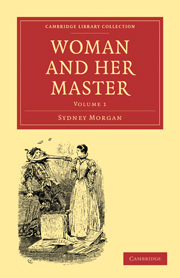Summary
The sufferings and the wrongs of woman among the savage tribes of the inferior races, however separated by origin or by distance, every where alike exhibit her and her master in the same relation — in that of slave and tyrant — a relation determined by physical causes, and by that pressure of externals, to which the male organization is the most successfully opposed. The possession of power awakens the selfishness of man in all races and in all climes, developing tendencies, which a high civilization and an enlightened morality alone can regulate and adjust.
But the position of the women of savage life, miserable as it may be, is less strikingly degraded than that of the females of those vast empires of the East, which vaunt an antique origin, and in which the lights of a semi-civilization have surrounded a fraction at least of the species with the luxuries of wealth, and afforded something of the semblance of a social policy. Of the earliest condition of these widely extended nations nothing is known; and the few scanty fragments of their history which have reached posterity shew them as then already far removed from the rudeness of savage life. In these fragments, the records of ages when civilization was as yet exclusively confined to Asia (the supposed cradle of the human species, and, certainly, the cradle of its written history), physical pressure of another character and origin is found to determine the servitude of woman, and to crush her under a slavery, if possible, more revolting than that of the mere savage.
- Type
- Chapter
- Information
- Woman and her Master , pp. 34 - 58Publisher: Cambridge University PressPrint publication year: 2010First published in: 1840

